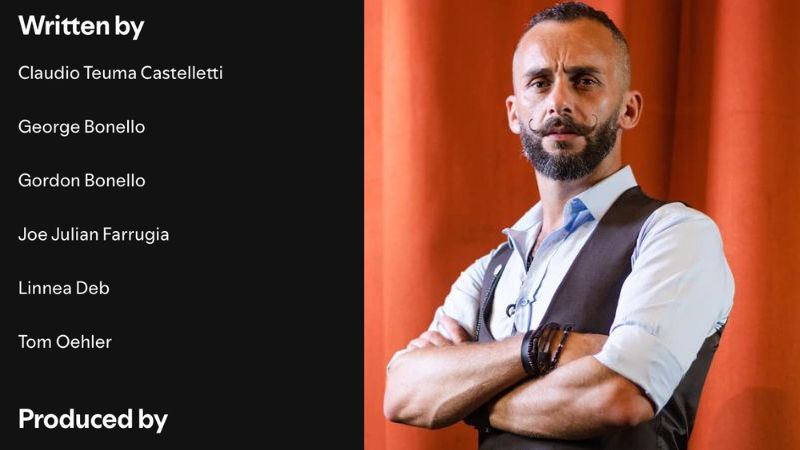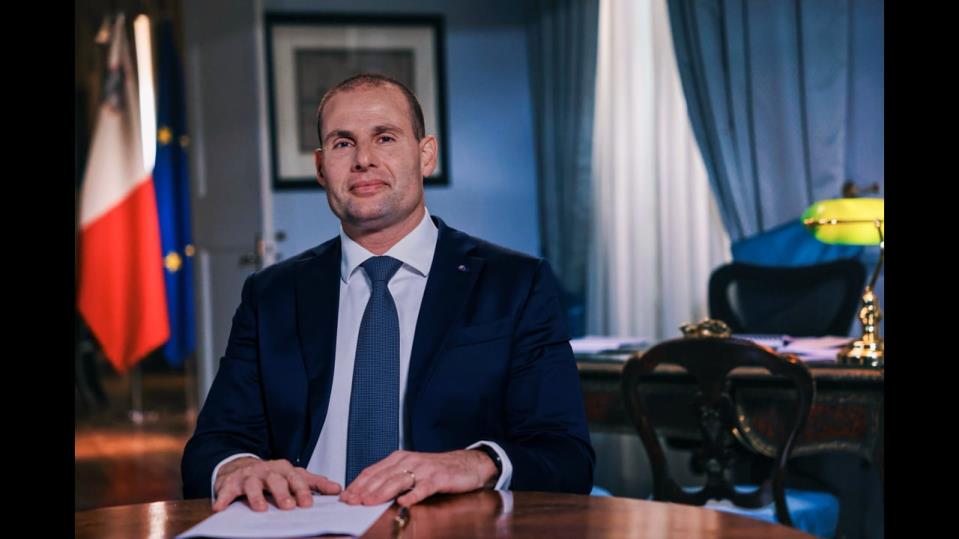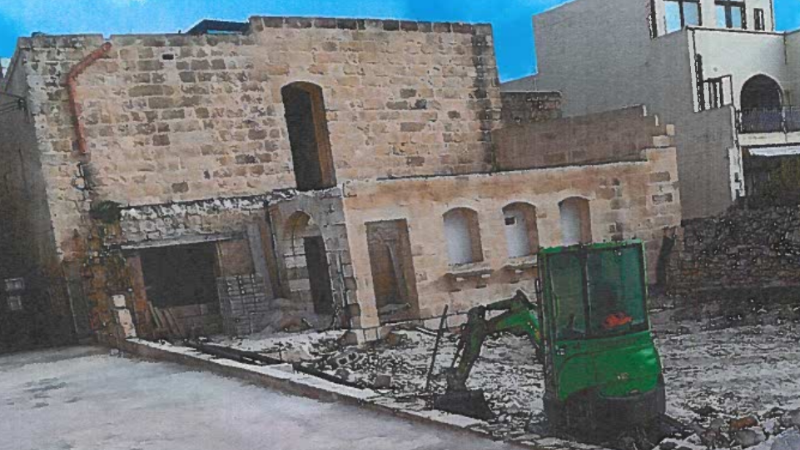The State broadcaster, responsible for organising the Malta Eurovision Song Contest and selecting the winner to represent the country on the international stage, has remained silent over allegations from contestants about a conflict of interest in this year’s competition.
Contestants have claimed that Gordon Bonello, PBS’ top official overseeing the contest and the Head of the Delegation for Malta’s eventual Eurovision participation, has a serious conflict of interest. Bonello is listed as one of the authors of a song competing in the contest.
According to sources, the credits for the song “Lalaratatakeke Lalaratakabum” by Kantera on Spotify indicate that Gordon Bonello and another PBS employee, Joe Julian Farrugia, are credited as authors.
Participants in the contest have reported this apparent conflict to PBS’ management, but no action has been taken.

Gordon Bonello’s name is listed as one of the authors of Kantera’s song on Spotify.
Online polls show that Kantera’s song is among the top favourites to win this year’s edition.
When The Shift reached out for a comment, PBS CEO Keith Chetcuti did not reply. Inquiries sent to Bonello at his PBS office also went unanswered despite several reminders.
The Shift asked Bonello to clarify his involvement as one of the credited authors of Kantera’s song on Spotify, to confirm his authorship of the participating song, and whether he has disclosed this potential conflict of interest.
Bonello’s situation is viewed as more serious than that of Joe Julian Farrugia, another author of the song and a PBS employee who hosts a daily breakfast show on Radio Malta.
Bonello’s partner is Farrugia’s daughter and an employee of PBS.
Back to square one
This year’s edition will feature a completely different format than last year.
Fans harshly criticised the 2024 edition after the long-standing tradition of having live spectators was discontinued. Instead, PBS opted to use an old studio with no audience and participants miming pre-recorded tracks.
This has now been reversed as this year’s show will again take place with an audience at the Malta Fairs and Conventions tent in Ta’ Qali.
Last year’s edition was considered a failure despite the fact that the former PBS CEO, Mark Sammut, had spent hundreds of thousands of taxpayer funds to upgrade an unused studio for the show just before his dismissal in the summer.
PBS Minister Owen Bonnici insisted the broadcaster should avoid repeating the previous year’s mistakes.
Bonnici has yet to present a list of tenders and direct orders issued last year for the studio’s refurbishment, which now remain unused.












